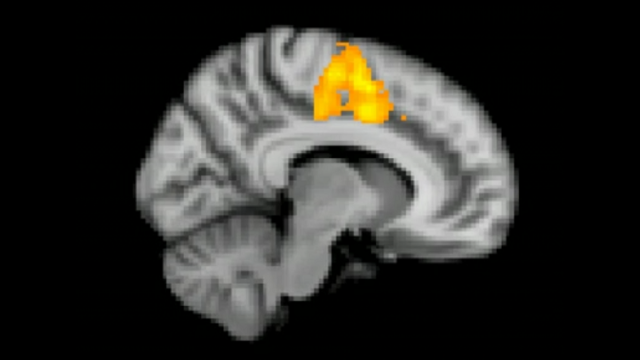There’s a neurological reason for apathy and laziness, according to new research. Inefficient connections between certain areas of the brain may make it harder for some people to decide to act.
Although inefficient neural connections don’t explain away everyone’s laziness, new research could shed some light on the kind of pathological, extreme apathy that sometimes plagues people with Alzheimer’s disease or recovering from certain types of stroke.
To understand the neurological basis of apathy, neurologists at Oxford University looked for differences in the brains of young people who appeared motivated (based on a questionnaire) and those who appeared more apathetic. Participants played a decision-making game while researchers watched what happened in their brains, using an MRI.
In each round of the game, the researcher offered the subject a reward in return for some effort. Participants had to decide whether to accept the offer, based on whether the reward as worth the effort. Predictably, the participants who had already been identified as apathetic were much less likely to accept offers that required effort, even if the reward was large – but when apathetic subjects did choose to accept an offer, their MRIs showed much more activity in the pre-motor cortex, an area of the brain involved in taking actions, than in more motivated participants.
That was the opposite of what researchers expected. They had assumed that lazy people’s pre-motor cortices would show less activity when deciding to take action.
“We thought that this might be because their brain structure is less efficient, so it’s more of an effort for apathetic people to turn decisions into actions,” said lead researcher Masud Husain, a professor of neurology and cognitive neuroscience at Oxford University, in a statement. After further investigation, it turned out that people who identified as apathetic had less efficient connections between the anterior cingulate cortex, a part of the brain involved in making decisions and anticipating rewards, and the supplementary motor area, a part of the brain that helps control movement.
“The brain uses around a fifth of the energy you’re burning each day. If it takes more energy to plan an action, it becomes more costly for apathetic people to make actions,” explained Husain. “Their brains have to make more effort.” Husain and his team published their findings in the journal Cerebral Cortex.
[Cerebral Cortex, Oxford University]
Top image: Oxford University
